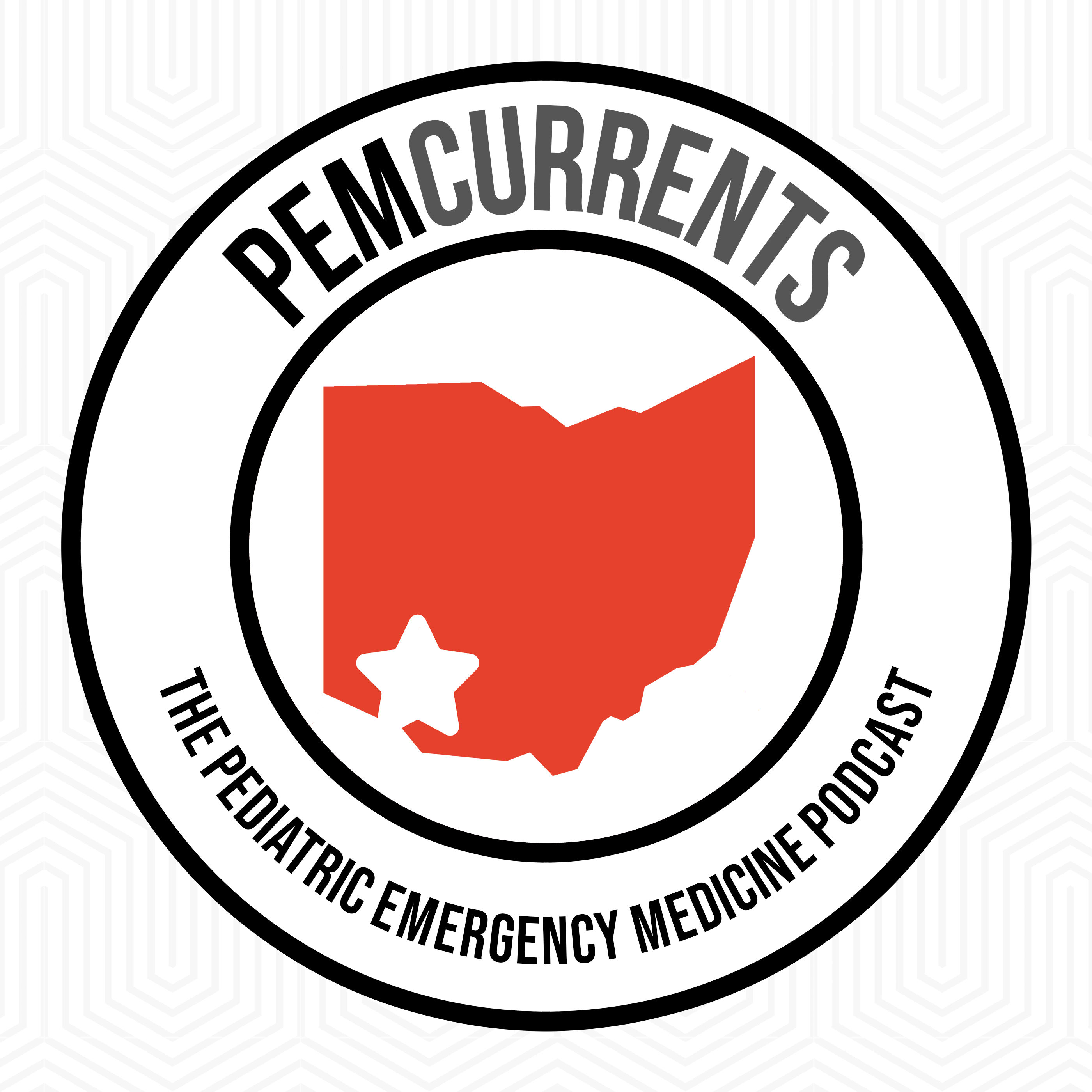Patient that are agitated should always be treated with dignity and respect. This entails utilizing the least invasive non-pharmacologic means of assisting them, before moving to physical or chemical restraints. This podcast episode hosted by Brad Sobolewski (@PEMTweets) and co-authored by Dennis Ren (@DennisRenMD) is all about age-appropriate non pharmacologic management strategies for agitated children. It is also episode 2 in a 5 episode series focused on agitation in children and adolescents.
After listening to this episode you will be able to:
- Discuss specific age-appropriate non pharmacologic management strategies for agitated children
- Discuss how we can safely use holds and restraints, and how these are temporary measures
This episode is a co-production of the Emergency Medical Services for Children Innovation and Improvement Center whose mission is to minimize morbidity and mortality of acutely ill and injured children across the emergency continuum. We have developed a series of pain focused episodes.
Other Episodes in the Agitation Series
Episode 1: Differentiating organic versus psychiatric causes of agitation and altered mental status | Supplementary EMDocs article
Episode 3: Pharmacologic management of agitated children (Coming May 31, 2023)
Episode 4: Safe pre-hospital transport of the agitated child (Coming June 7, 2023)
Episode 5: Management of the child with mental health problems who is boarded in the Emergency Department (Coming June 14, 2023)
Listen

Managing Pain in Sickle Cell Vaso-Occlusive Crises – PEM Currents: The Pediatric Emergency Medicine Podcast
Subscribe
EMDocs Collaboration
EMDocs.net – the excellent Emergency Medicine site will also be contributing a supplementary article for each episode that will be posted each Friday following the release of the podcast episode. These articles will take another look at the content included in this episode.
Special thanks to Manpreet Singh, MD (@MprizzleER) for helping to put this collaboration together.
EMSC IIC
To learn more about the Emergency Medical Services for Children Innovation and Improvement Center visit https://emscimprovement.center
Email km@emscimprovement.center
Follow on Twitter @EMSCImprovement
EMSC IIC: Pediatric Education and Advocacy Kit (PEAK): Agitation
PEAK Agitation resources
- EIIC/TREKK: Care of the Agitated Patient Algorithm
- EIIC/TREKK: Agitation Medication Dosing Recommendation Table
- EIIC: De-escalation Tips for Pediatric Agitation Infographic
- EIIC: Emergency Department Management of the Agitated Pediatric Patient Interactive Learning Module
- EIIC: Agitation in Neurodivergent Patients with Drs. Alice Kuo and Ilene Claudius Podcast
- EIIC: Safe Control of the Agitated Patient Webinar Series with Dr. Marianne Gausche-Hill
- New England EMSC: New England Regional Behavioral Health Toolkit
Disclaimer
The Emergency Medical Services for Children Innovation and Improvement Center is supported by the Health Resources and Services Administration (HRSA) of the U.S. Department of Health and Human Services (HHS) as part of an award (U07MC37471) totaling $3M with 0 percent financed with nongovernmental sources. The contents are those of the author(s) and do not necessarily represent the official views of, nor an endorsement, by HRSA, HHS, or the U.S. Government. For more information, please visit HRSA.gov
To learn more about the Emergency Medical Services for Children Innovation and Improvement Center visit https://emscimprovement.center
Email km@emscimprovement.center
Follow on Twitter @EMSCImprovement
References
Berzlanovich AM, Schöpfer J, Keil W. Deaths due to physical restraint. Dtsch Arztebl Int. 2012 Jan;109(3):27-32. PMC3272587.
Coburn VA, Mycyk MB. Physical and chemical restraints. Emerg Med Clin North Am. 2009 Nov;27(4):655-67, ix. doi: 10.1016/j.emc.2009.07.003. PMID: 19932399.
Downes MA, Healy P, Page CB, Bryant JL, Isbister GK. Structured team approach to the agitated patient in the emergency department. Emerg Med Australas. 2009 Jun;21(3):196-202. PMID: 19527279.
Knox DK, Holloman GH Jr. Use and avoidance of seclusion and restraint: consensus statement of the american association for emergency psychiatry project Beta seclusion and restraint workgroup. West J Emerg Med. 2012 Feb;13(1):35-40. PMC3298214.
Melamed E, Oron Y, Ben-Avraham R, Blumenfeld A, Lin G. The combative multitrauma patient: a protocol for prehospital management. Eur J Emerg Med. 2007 Oct;14(5):265-8. PMID: 17823561.
















[…] podcast posted on PEM Currents – Hosted by Brad Sobolewski (@PEMTweets) and co-authored by Dennis Ren […]